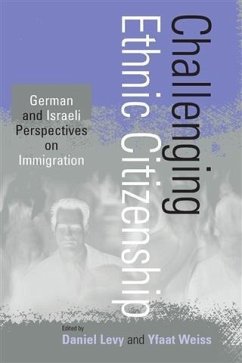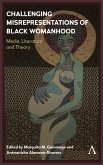This volume offers rich empirical and theoretical material involving historical developments, demographic changes, sociological problems, anthropological insights, and political implications. Focusing on the three dimensions of citizenship: sovereignty and control, the allocation of social and political rights, and questions of national self-understanding, the essays bring to light the elements that are distinctive for either society but also point to similarities that owe as much to nation-specific characteristics as to evolving patterns of global migration.
Dieser Download kann aus rechtlichen Gründen nur mit Rechnungsadresse in A, B, BG, CY, CZ, D, DK, EW, E, FIN, F, GR, HR, H, IRL, I, LT, L, LR, M, NL, PL, P, R, S, SLO, SK ausgeliefert werden.









